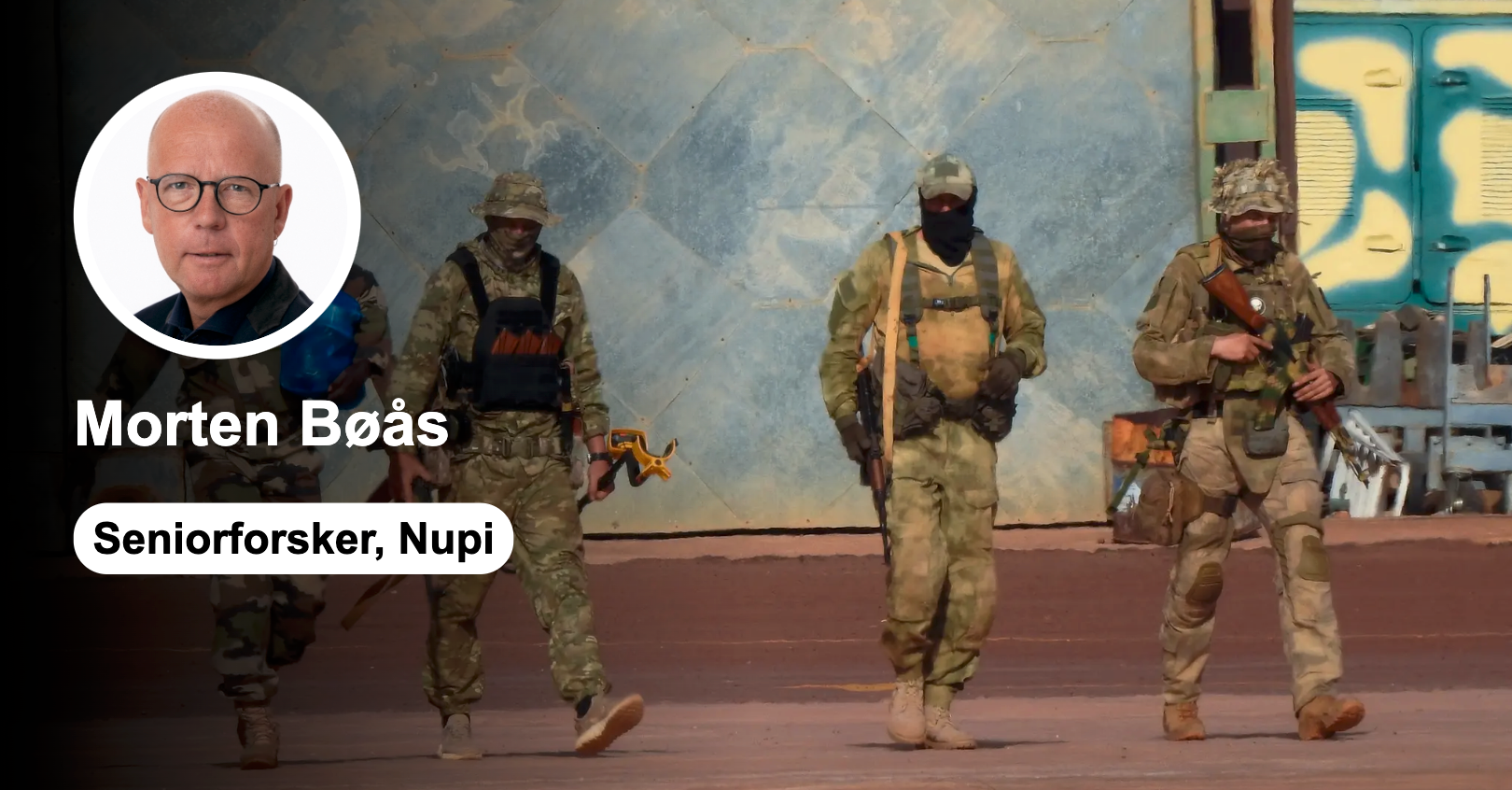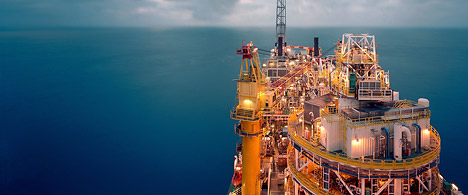In Africa, the Wagner Group operates as a private security company within what we call niche security markets, writes Morten Bøås. Image: Wagner soldiers in Mali, undated.
And now?
The Wagner group was not only an important actor in the Russian war in Ukraine. It also has major operations in Africa:
- They are strongly present in Mali and the Central African Republic.
- In Libya, they fought alongside General Khalifa Haftar against the government in Tripoli.
- They are involved in gold mining in Sudan. They are controlled by Al-Gunade, the family company of the leader of the paramilitary militia RSF (Rapid Support Forces), General Mohamed Hamdan Dagalo, better known as Hemetti.
- And they had more or less important missions in a certain number of other African countries.
To understand this business, it must be recognized that in Africa the group operates as a private security company within what are called security niches. An area that Western countries, but also private security companies, have thanked for having seized.
Advantage of operating from Russia
Wagner’s soldiers operated from a home base in Russia. To a lesser extent, they had to take account of critical analysis or public opinion. For them, it is not a problem if a regime violates human rights.
This gave it an advantage over similar companies in Western countries, which had to cease operations when it was discovered that they were causing abuses against civilians. The American company Blackwater in Iraq is an example.
Yevgeny Prigozhin and Wagner’s management did not have to have such concerns in mind.
Mercenaries only one side of the business
What then is the model according to which the Wagner group operated?
It was more commercially advanced and had a much more active and conscious social media strategy than similar companies.
The economic model is based on two elements. One is contracts with customers after agreed payment.
With the exception of Hafter in Libya, it has been with heads of state. In return for monthly payments, Wagner’s soldiers performed security missions. These range from training, bodyguard services for presidents and measures to secure a regime to active participation in the fight against rebels, whether secular or, as in Mali, jihadist-inspired rebel groups.
These contracts will not only cover the operating expenses of the Wagner Group, but will also ensure the group a profit. However, that’s not where the big money is.
Gold and diamonds pay a lot
We are here at one of the innovative measures taken by the Wagner Group, which we had not yet seen at other private security companies.
The group has its own department of geologists who investigate mining opportunities in the countries where it is involved. When these opportunities seem economically favorable, the Wagner group seeks privileged access to mineral deposits. They are particularly interested in gold and diamonds, easily negotiable on the various international markets.
The Wagner Group has achieved this in the Central African Republic.
Through various companies controlled by executives of the group, it operates diamond mines itself and exports what is extracted. This provides excellent income.
It is difficult to estimate exactly the size of the values. But there are reasons to believe that it may be about as much as the Wagner group contributes to illegally leaving Sudan thanks to the collaboration with General Hemetti. It is estimated to be half of what Sudan produces annually in gold, or about $1.3 billion.
It makes money, and in the Central African Republic, the Wagner group built on that. It is now involved in a number of sectors ranging from trading in alcohol, food and other consumer goods and has also started investing in agriculture, livestock and forestry.
Not the same success everywhere
In Mali, the group has so far been unable to do the same. The country has significant gold reserves. The geologists of the Wagner group are aware of this, they have been there and have carried out investigations.
The problem is that the gold deposits in the south of the country are already exploited by large companies, including French, Canadian and Swiss. If the Wagner Group is to take over one of them, it must first be nationalized. So far, the Malian regime has not wanted to do this.
New gold deposits have also been discovered, but here the problem is that they are either in areas over which no one has control or in areas controlled by jihadists. If the Wagner group wants to seize them, they must first fight their way to them, then control them over time, then begin to organize the extraction.
It will be an extraction which, in the initial phase, will have to be based on the extraction of gold in the old way. It means spit, spade and open washboard. Even if the Wagner group manages to find these deposits, it will be very demanding to control them. In Mali, the Wagner Group is probably now operating with a small profit at best.
Social Media Specialists
The business model explains how Wagner acquired the necessary funds to become a major player in Africa, but the use of social media is equally important.
Those leading this part of the business know and understand the frustration that many young people in countries like Mali feel towards the West and in particular the former colonial power France.
Parts of the communication hit well with a wave of youthful patriotism. It also suits the leaders of countries like Mali very well.
At the same time, they are managers who may feel that their position is compromised. Calling on an external armed group like Wagner can be an effective form of protection against coups and rebellions.
And now?
What will happen to the Wagner Group in Africa if it is closed in Russia?
It can disappear, which can lead to new conflicts where it is strongly present. But it is also possible that the Wagner group will remain a player in Africa.
In the Central African Republic in particular, it is so established and brings in so much money that it could become the group’s new center of activity.
That remains to be seen. But what happened in Russia does not necessarily mean the end of an economic model that created a private security company. Today, the Wagner Group most resembles an armed multilateral corporation with personal political contacts in which it is involved.

“Music practitioner. Passionate bacon fanatic. Reader. Food enthusiast. Alcohol nerd. Gamer. Twitter maven.”







